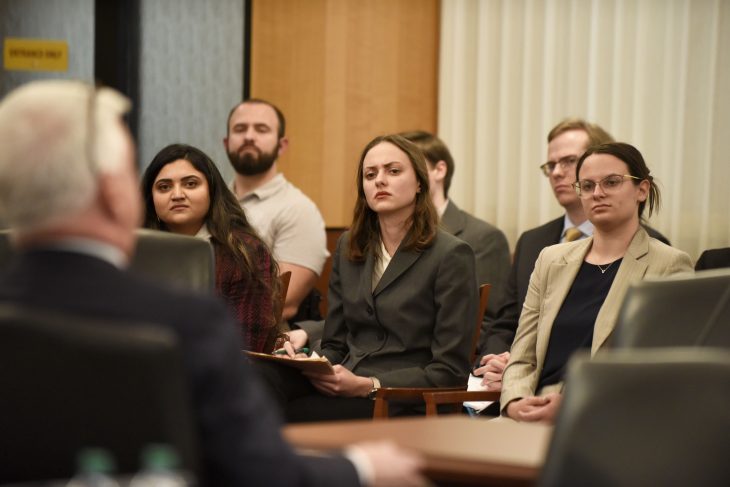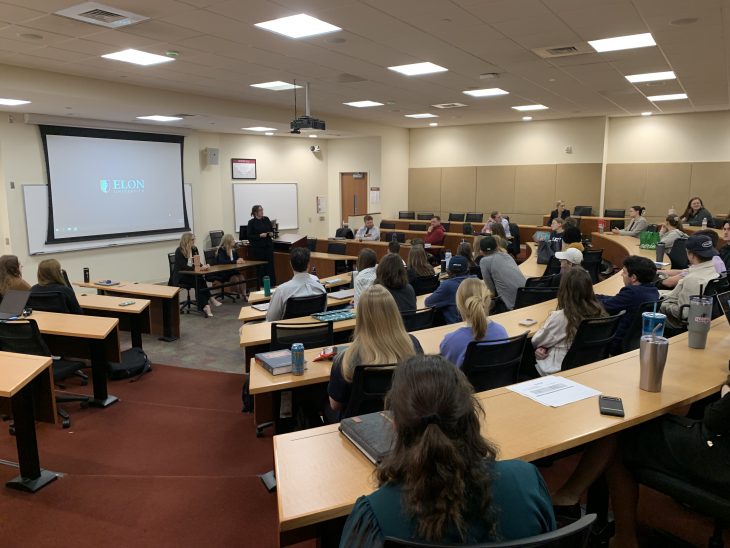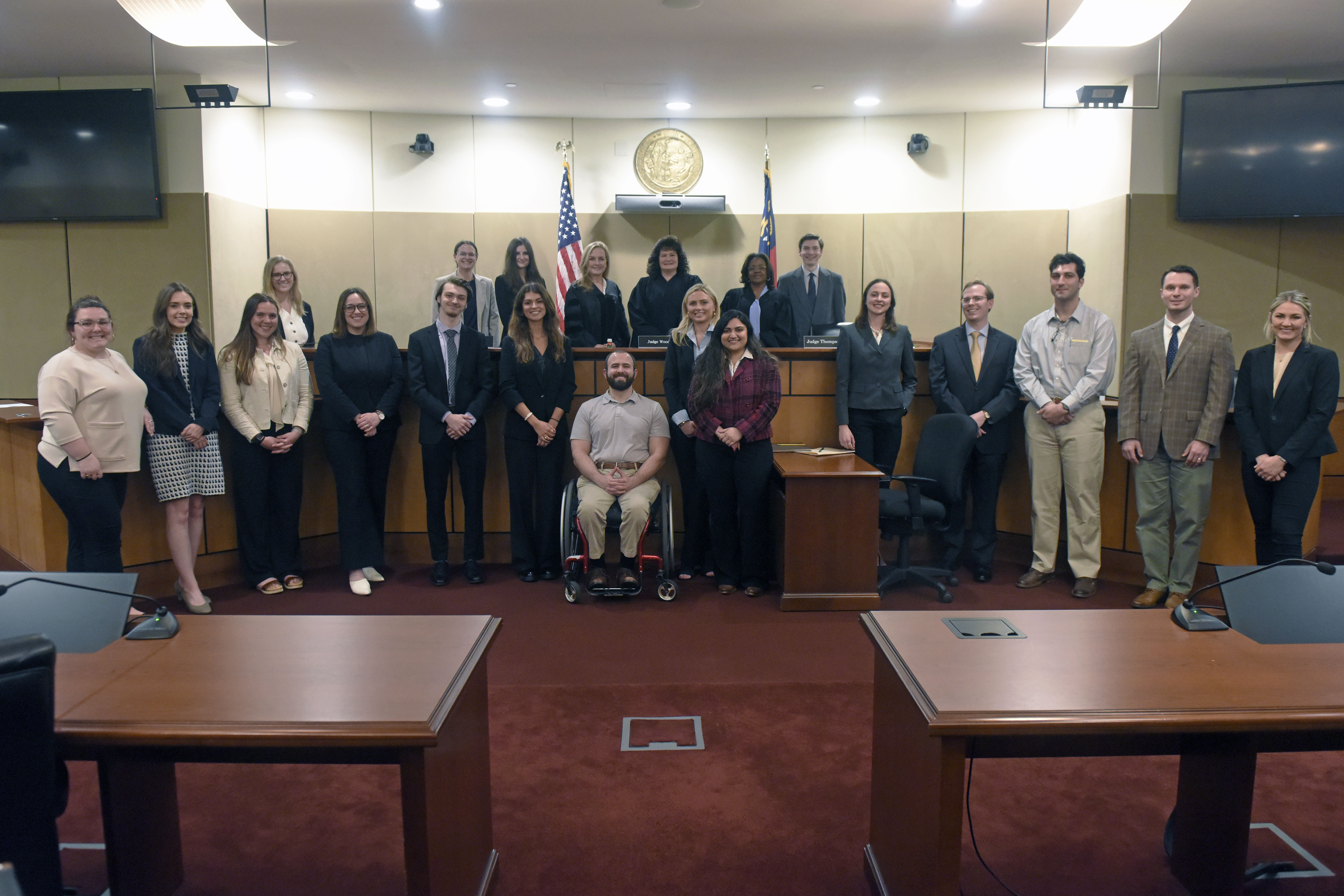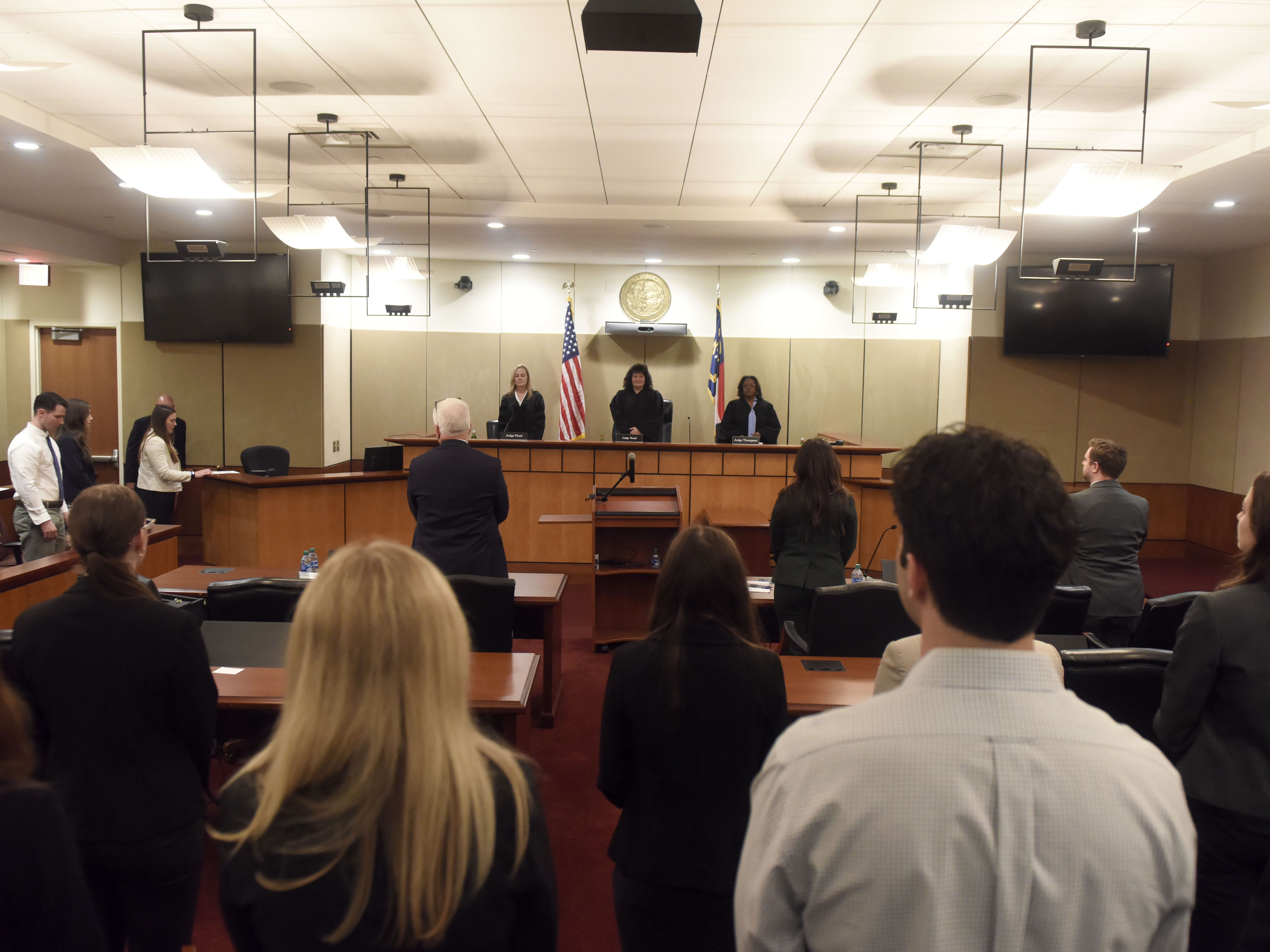Judges visited with legal writing classes and dined with students interested in clerkships before oral arguments in two cases soon to be decided: the first involving a drug trafficking conviction, and the other a question of attorney fees in a lawsuit brought against an employer.
A recent visit to Elon University School of Law by the North Carolina Court of Appeals offered more than an avenue for students to observe appellate advocacy in real time.
It also provided them an opportunity to learn directly from some of the state’s leading jurists, including a former member of the Elon Law faculty.

Judges April Wood, Jefferson Griffin, and Julee Flood heard arguments on April 9, 2024, in State v. McNeil, which involved questions of whether a trial court erred in not dismissing drug trafficking charges in a case out of Randolph County where the defendant never took independent possession of a package containing methamphetamine.
The same appeal also challenged the trial court’s decision not to inform the jury of the lesser offense of attempted trafficking in methamphetamine by possession.
Wood and Flood were joined later in the afternoon by Judge Carolyn Thompson to hear arguments in Brown v. Caruso Homes, Inc. In that appeal, a woman had won a jury trial against an employer who failed to pay earned commissions. Despite the win, lawyers argued that a trial court erred in not also awarding attorney fees.
Arguments took place in the Robert E. Long Courtroom inside Elon University’s downtown Greensboro law school. A Q&A was moderated afterward by legal writing faculty members Srikanth Reddy and Megan Reilly-Dreas L’21, an administrative clerk for Flood teaching this spring at Elon Law.

Flood and one of her other law clerks, Elon Law graduate Emily Erickson L’22, visited with legal method and communication classes shortly after their arrival and before the afternoon hearings. Among the questions students posed to Flood, who once served as a Legal Method and Communication Fellow at Elon Law: how do you handle cases where, when applying the black letter law, the outcome does not align with what you’d consider to be fair or just?
Flood’s reply? It’s not her job to make the law or inject her personal opinion but to apply the law as written and follow that to its logical conclusion.
“If you looked closely enough,” Reilly-Dreas said, “you could see lightbulbs popping up over the heads of several students when Judge Flood said it was the job of the legislature to make the law and it was her job to apply the law as written.”
Professors said the judges’ visit to Elon Law illustrated for students the relevance of what they’re now learning in the classroom.
“Attending oral arguments really helps students understand the importance of thorough legal research and careful, persuasive writing in legal practice,” said Assistant Professor Caroleen Dineen, director of Elon Law’s Legal Method and Communication Program. “In addition to watching attorneys advocate for clients, students interacted with judges to learn more about what they do and how they evaluate briefs and oral arguments.
“The valuable information that judges shared about tips for effective legal writing, preparations for oral arguments, and traits they seek in law clerks will be of lasting benefit to students who may one day want to serve in those very same judicial roles.”

Student Reflections
- “I felt it was valuable watching appellate judges for the first time. I don’t think I would have had this opportunity anywhere else. Hearing how they responded to arguments, and hearing their reactions and their answers to students, was incredible.” – Frank Edwards L’25 of Smithfield, Va., a graduate of George Mason University
- “What I really took away from the Court of Appeals visit was the aspect of law we don’t necessarily get to see in the classroom. Watching judges interact with not just lawyers or the brief, but with the laws themselves, and seeing things unfold in real time on your feet, wasn’t something I’ve been exposed to.” – Dmitri McKinney L’25 of Elon, N.C., a graduate of North Carolina State University
- “The judges being here at Elon was amazing. They helped students see what happens at the Court of Appeals and how much work it takes. I also loved seeing attorneys in their moment, in their zone, answer questions and know their subject backward and forward. They’ll take the same law and show their perspectives and persuade the court which side is correct.” – Aashna Tarasaria L’24 of Greensboro, N.C., a graduate of UNC Greensboro and High Point University (MBA)



